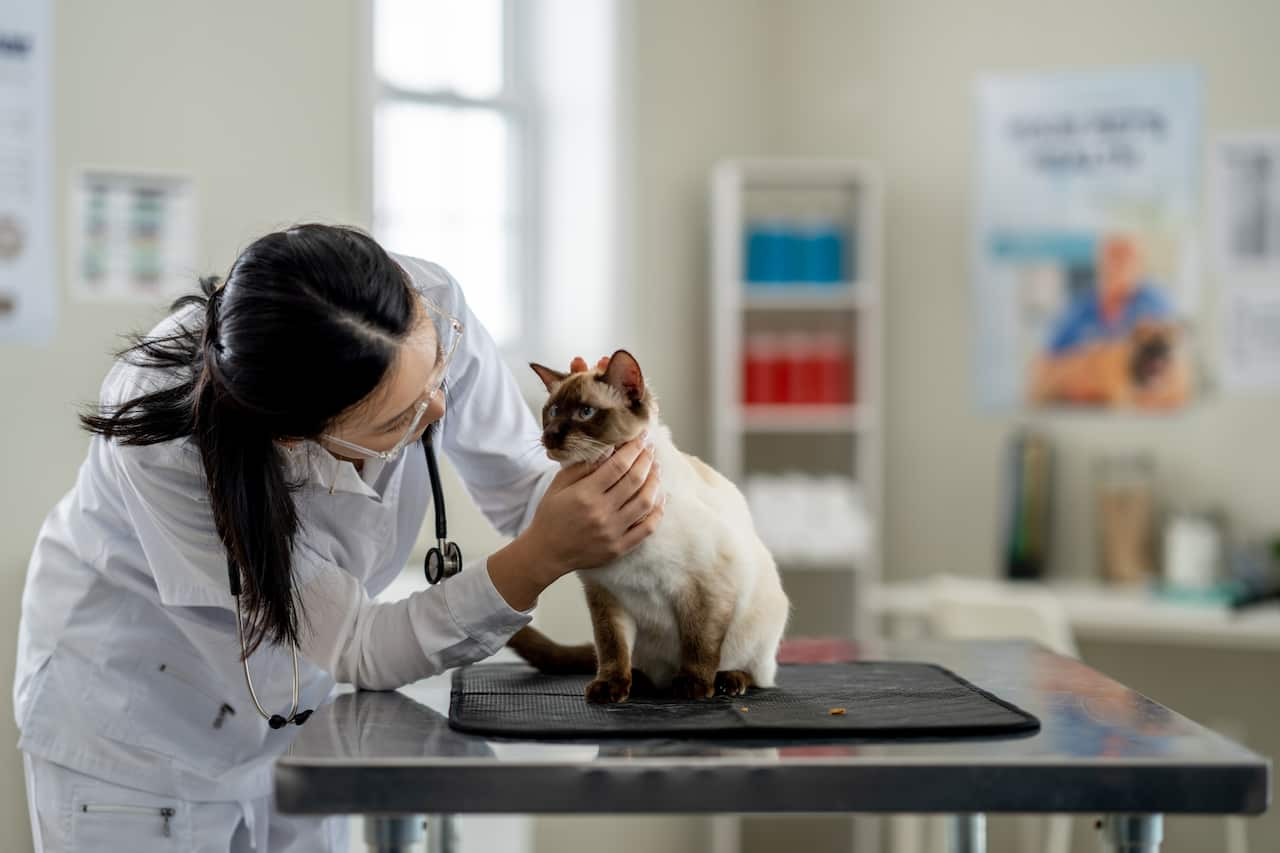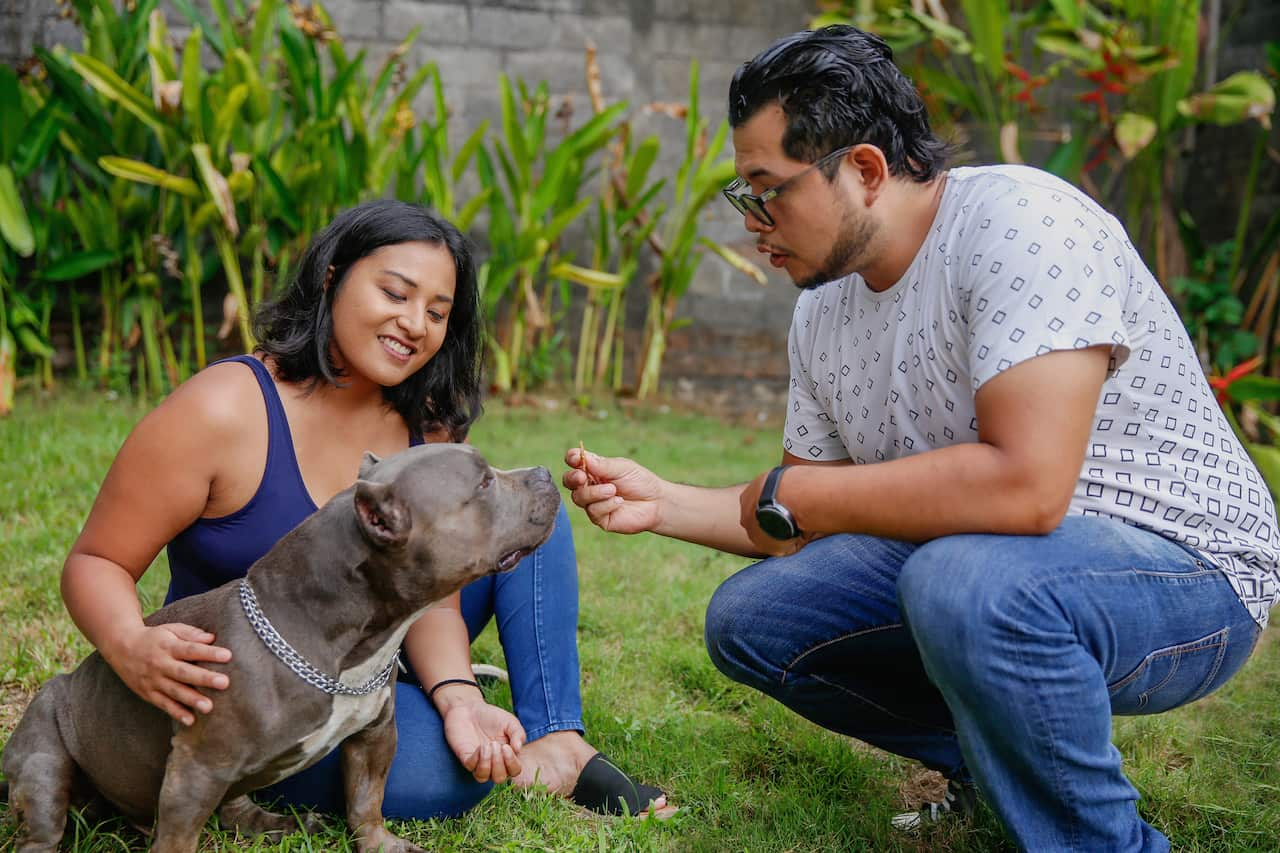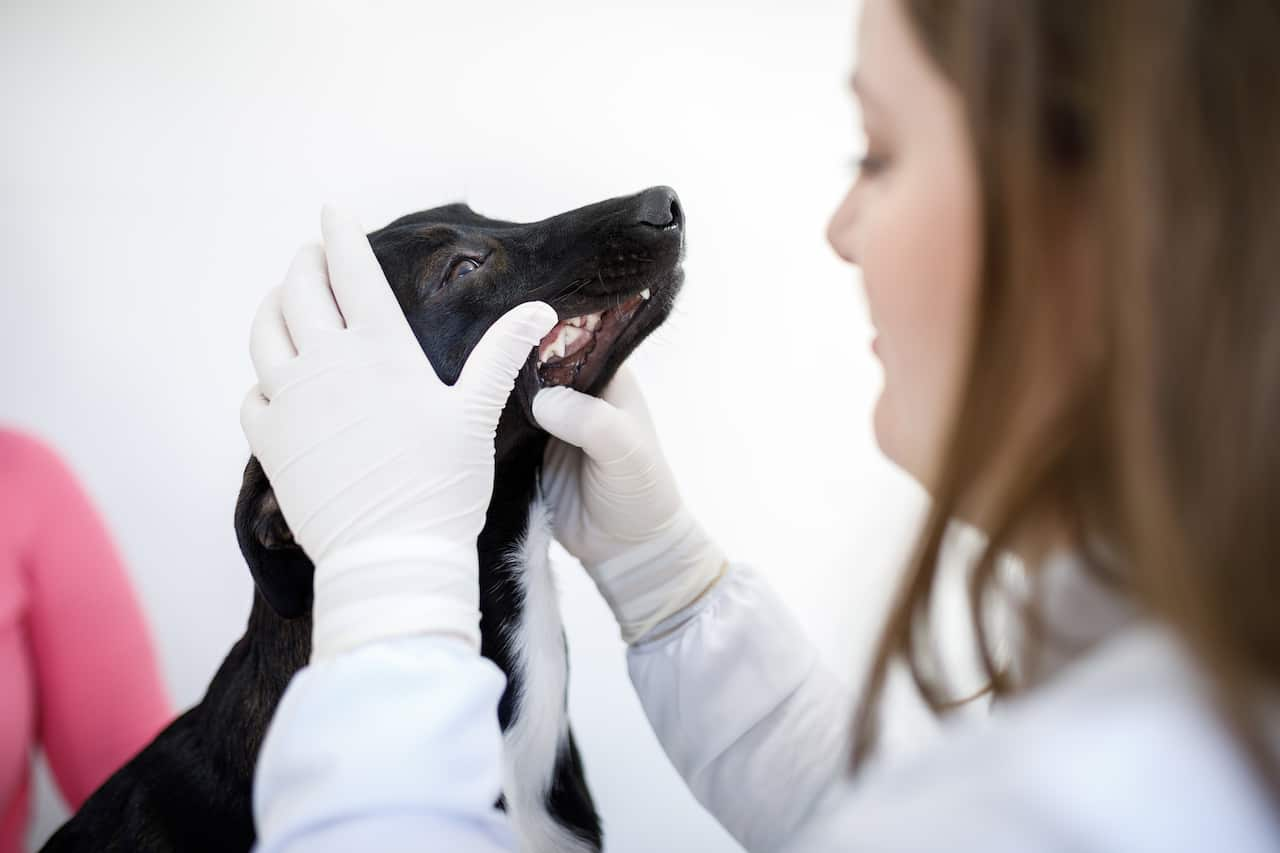Key Points
- Microchipping and registration are both legal requirements for dog and cat owners. Make sure you do both as they are separate processes.
- A pet’s healthcare plan includes regular check-ups, dental care, vaccinations, and treatment of any chronic conditions.
- Taking up the responsibility of an animal should be an informed decision by all household members involved in their care.
Pets are a beloved part of life for many Australians, with nearly two in three households sharing their home with one.
Three years ago, Vindhya Nivunhellage and her partner, James, decided to welcome a dog into their lives.
As a dog parent, she describes finding “sheer joy” in the small things, like “waking up and seeing a beaming face” or “a wagging tail whenever you get home.”

“And if there are days when you're feeling low, you still have an obligation to take your dog on a walk and… so you are forced to think beyond your own self.”
But having a pet is also a commitment that shouldn’t be taken lightly.
“Pets shouldn't be a Christmas present or a birthday gift.
“It should be something that is thought about fully with the whole family involved, and who does what, because you're bringing another individual into your household that requires constant attention.”
Ms Nivunhellage shares the responsibilities of Algot’s care with her partner.
“James and I, as we don't have children, we liken having Algot to having a baby because it requires so much planning.
“For example, for the first few years of Algot's life, we would take him to the dog park for a solid one hour of running in the morning and one hour of running in the evening.
“And we did that because we felt that we ought to give him that opportunity because he didn't have a backyard.”

Pet laws
In Australia, there is legislation that regulates the keeping of dogs and cats.
Tara Ward is the volunteer Managing solicitor at the Animal Defenders Office, a community legal centre for animal issues.
She explains that while state and council pet laws differ, there are some legal requirements for cat and dog owners applying across the country.
They include microchipping your pet.
“You can microchip other kinds of pets. That's an optional extra though. Cats and dogs, you have to do it.
“The vet or the person who inserts the microchip will record on the database information about who owns this animal and who to contact should the animal be lost,” Ms Ward explains.
It is also mandatory for cat and dog keepers to register with their local authority.
Ms Ward says a common misconception is that microchipping and registration are the same, but they’re not.

“These are two entirely separate processes. Microchipping is about identifying your cat or your dog. Registering is about putting the details of your dog or your cat on your local government list of pets."
When it comes to desexing pets, legislation varies from one jurisdiction to another.
“For example, when you get your cat or dog registered, it will cost more if the animal is not desexed, or they’re going to require you to get a permit every year and pay a fee for that.”
Check the laws that apply to your local council to ensure you comply with your legal responsibilities as a pet owner.
“The actual laws about dogs and cats are managed at the local council level. Do try to get across them, because you really want to avoid getting into legal issues about your animals,” says Ms Ward.

Pet ownership in your state/territory
- New South Wales
- Australian Capital Territory
- Victoria
- South Australia
- Western Australia
- Tasmania
- Queensland
- Northern Territory
Managing your pet: training and care
When it comes to dogs, training is recommended whether you chose to do it yourself or hire a trainer.
Professional training benefits include structured learning, targeted behaviour modification programs and socialisation through puppy schools.
Nadia Peiris, senior animal care manager at RSPCA Victoria, shares some key advice for when choosing to be your dog’s trainer:
“We always recommend positive reinforcement and positive-based training, using treats where possible.
“Make sure to start as early as possible, because the more that you can do in that critical early stage when they're puppies, the better. And just be consistent.”

Things you should know about your pet:
- Worm and flee treatments are necessary both for pets kept indoors and outdoors.
- A dry nose is not uncommon in dogs nor an indication that they are unwell.
- Cats do not always land on their feet.
- A cat purring or a dog wagging their tail can be due to a range of moods, not necessarily feeling happy.
Your pet’s diet and health are responsibilities you need to factor in your care duties and your monthly budget.
“When it comes to food, the most important thing is that it's appropriate for that animal and for that life stage of the animal,” Dr Kate Golaszewski says, who is vet director of the Campbellfield site at Lort Smith animal hospital.
And bear in mind that dogs and cats tend to get accustomed to the foods you feed them.
“Sometimes people will say ‘oh, there's another brand of pet food that's on special, I'll try that this week’. But pets generally don't do terribly well with lots of changes in their diet and takes them a little while for their gut to respond,” Dr Golaszewski explains.

“If you are transitioning to a different type of pet food, we recommend that you do it over about a week or so.”
Feeding your pet human food is not advisable and, in some cases, can cause health issues.
“With chocolate, for example, we might see hyperactivity initially but that can then develop into maybe seizure activity. And the worst-case scenario, you can get dogs that present in a coma.”
Beyond regular medical check-ups, animals with chronic conditions, like heart disease or skin problems, will require more frequent visits to the vet.
Ultimately, just like with humans, Dr Golaszewski says any concerning changes in your pet’s health should prompt a visit to the vet. If you notice anything unusual — like sudden lethargy or other abnormalities — it’s best to get them checked.
If uncertain about the local laws affecting your pet or dealing with a legal issue as a pet owner, you can reach out to the Animal Defenders Office for advice.
If you find yourself in need of help to provide treatment and care to your pet or thinking of surrendering your pet, check the RSPCA website in your state/territory for information and available assistance programs.
Subscribe to or follow the Australia Explained podcast for more valuable information and tips about settling into your new life in Australia.
Do you have any questions or topic ideas? Send us an email to australiaexplained@sbs.com.au









